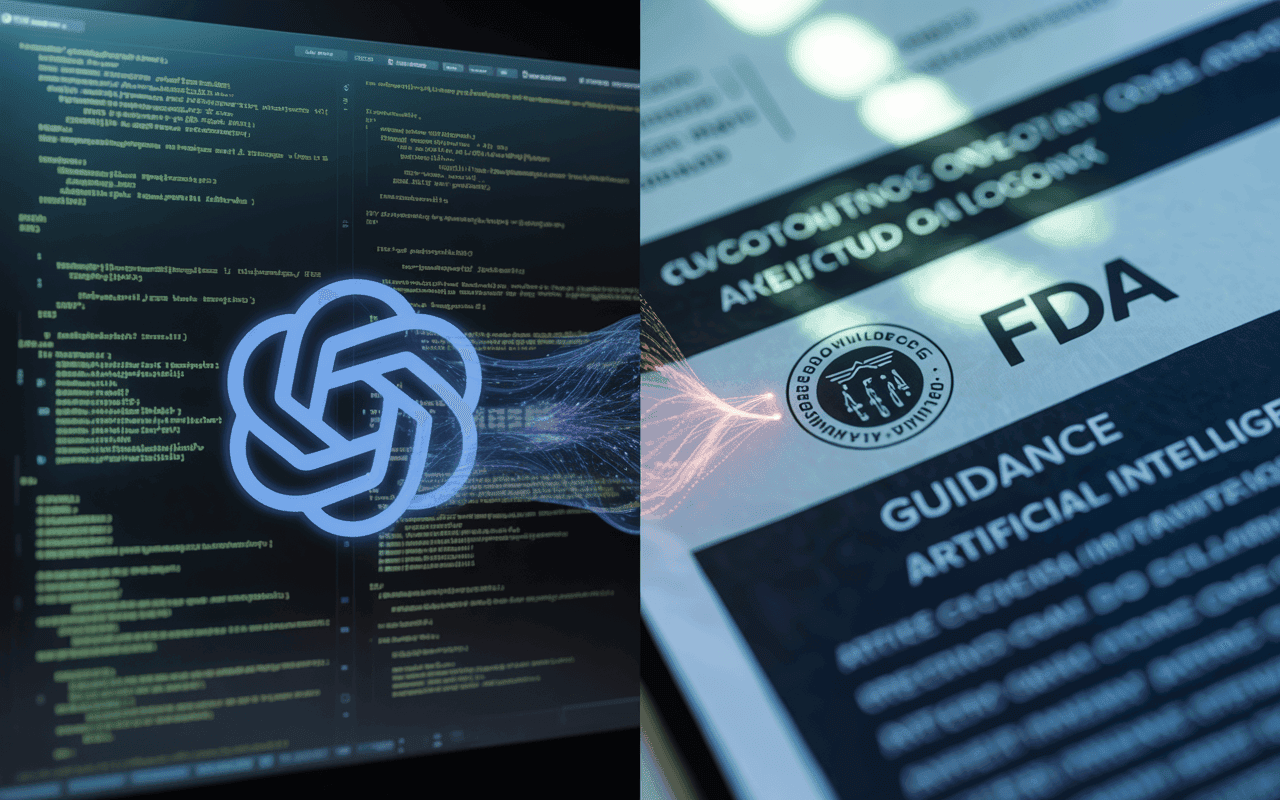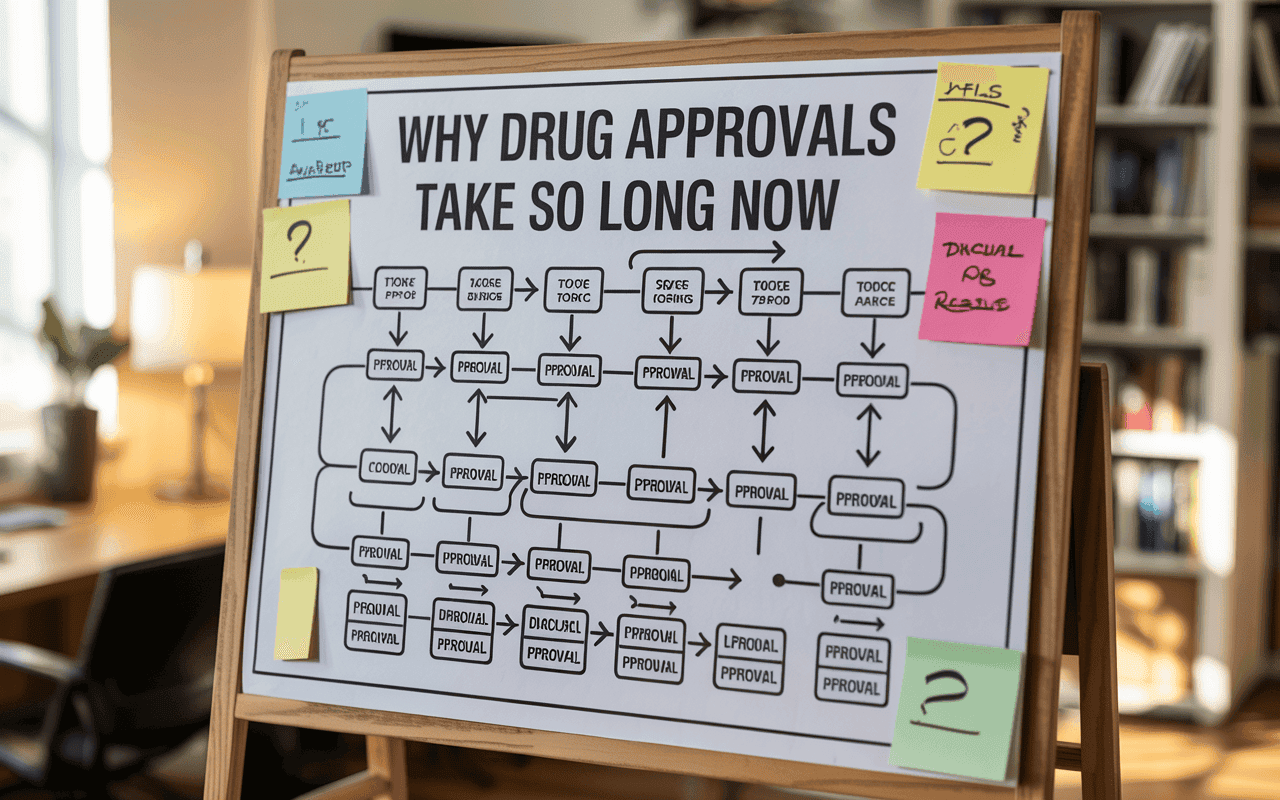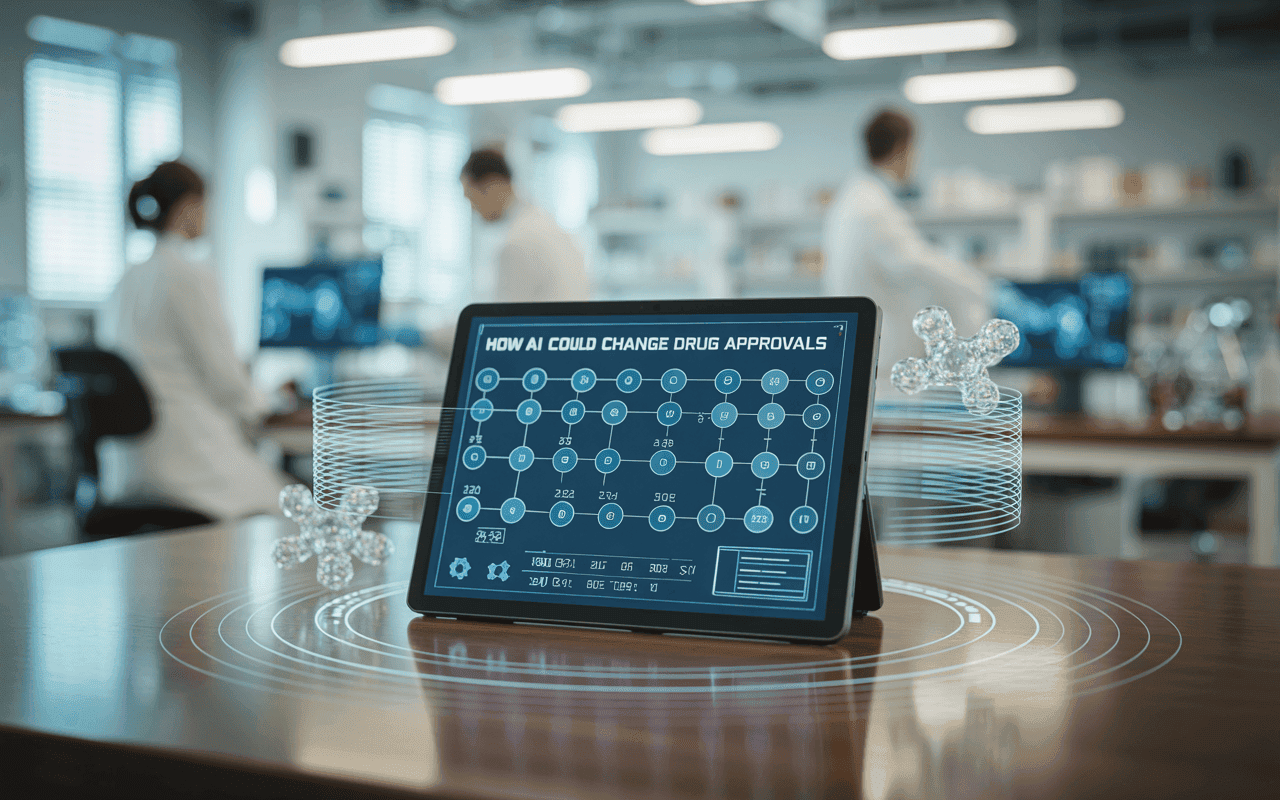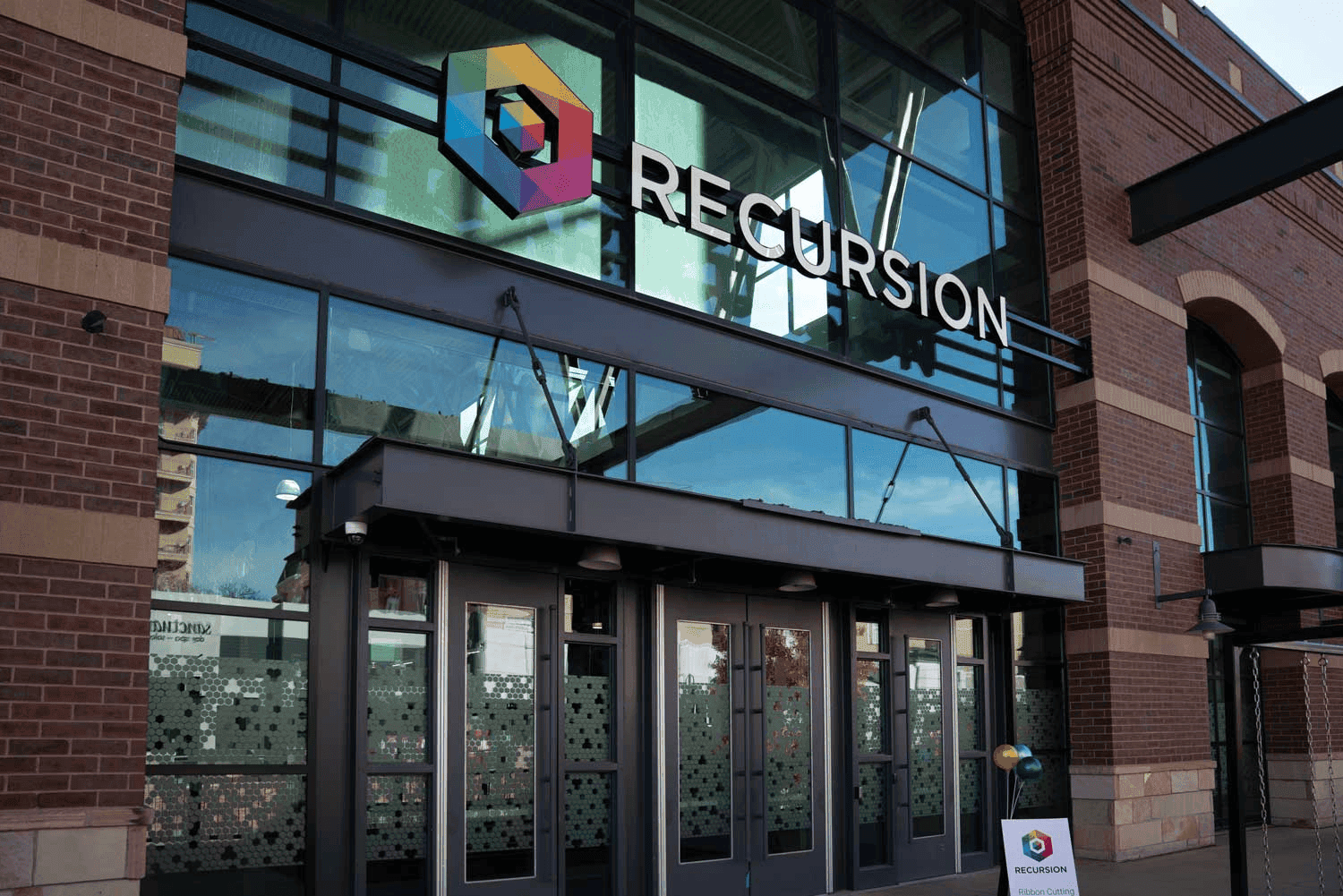OpenAI and FDA Discussing AI Use for Faster Drug Approvals
The world of medicine might be on the brink of a major change. OpenAI, the company that created ChatGPT, is now talking with the FDA about using artificial intelligence to speed up how new medicines get approved.
These discussions could transform a process that currently takes over 10 years into something much faster. Imagine new treatments for diseases reaching patients months earlier because AI helped review the mountains of data that normally slow things down. While this technology brings hope, it also raises important questions about safety and reliability.
In this article, we'll explore what's happening between OpenAI and the FDA, why drug approvals take so long now, how AI might change things, what concerns experts have, and what other companies are doing in this exciting space.
Let's get into it.
What's Happening Between OpenAI and FDA?

OpenAI, the company behind ChatGPT, has been meeting with the Food and Drug Administration (FDA) to talk about using AI to speed up how new medicines get approved. These talks have been happening over the past few weeks, though no official deal has been signed yet.
The meetings are being led by Jeremy Walsh, who was recently named the FDA's first-ever AI officer. Two people from Elon Musk's group called the Department of Government Efficiency have also joined these talks.
The main goal of these discussions is to find ways to use AI to make the drug approval process faster. Right now, it can take over 10 years for a new medicine to reach patients.
The project they're talking about is called "cderGPT" which likely stands for Center for Drug Evaluation and Research GPT. This center is the part of the FDA that checks and approves both prescription and over-the-counter medicines in the United States.
- The FDA has already completed its first AI-assisted scientific review for a product
- This effort is part of a bigger plan at the FDA to use new technology to modernize their work
- FDA Commissioner Marty Makary has spoken publicly about using AI to help approve new treatments
- The meetings also included discussions with Peter Bowman-Davis, who serves as acting chief AI officer at the Department of Health and Human Services
Why Drug Approvals Take So Long Now

Getting a new drug approved is a long journey that often takes more than 10 years from start to finish. The current approval process involves many careful steps to make sure medicines are both safe and effective before they reach patients.
The main steps in getting a drug approved include:
- Early research and discovery phase where scientists find and test new compounds
- Pre-clinical testing in labs and on animals to check if the drug might work
- Clinical trials with human volunteers (usually in three phases) to test safety and effectiveness
- FDA review of all the data and results
- Final approval decision and ongoing monitoring
This process moves slowly for good reasons. Scientists need time to gather enough data about safety. Each clinical trial phase must be carefully watched for problems. The FDA must then review thousands of pages of information for each drug application.
AI might help mostly with the final FDA review part of this process. While this is just one piece of the long timeline, making this review faster could still save months in getting helpful medicines to people who need them.
- The FDA review process alone currently takes about a year for standard applications
- Many drugs fail before even reaching the FDA review stage
- The agency already has some ways to speed up reviews for important medicines
How AI Could Change Drug Approvals

AI tools could take on several important tasks in the drug review process that currently require many hours of human work. These smart systems might check if applications are complete, look for patterns in test results, and help organize the huge amounts of data that come with each drug application.
- AI could quickly scan documents to make sure all required information is included
- It might spot important safety signals across large datasets faster than human reviewers
- The technology could help summarize complex information for FDA reviewers
This could save time by handling routine work so human experts can focus on the more complex parts of drug evaluation. Tasks that used to take weeks might be completed in days or even hours.
FDA Commissioner Marty Makary has spoken positively about this change, noting that the agency has already completed its first AI-assisted scientific review. He sees this as "just the beginning" of modernizing the approval process.
While AI-assisted reviews won't fix the entire 10-year drug development timeline, even saving a few months in the approval stage could help new treatments reach patients faster.
Concerns and Limits of Using AI

While AI shows promise for speeding up drug reviews, there are serious concerns about using these tools for important health decisions. One major worry is that AI systems can sometimes create convincing but completely wrong information, which could lead to mistakes in drug approvals.
- AI models might "hallucinate" or make up facts that sound real but aren't
- The systems could miss important safety issues if not properly trained
- AI might not handle unusual or rare cases as well as human experts
Health and AI experts suggest several safeguards would be needed before fully relying on this technology:
- Clear rules about what kind of data should be used to train these AI models
- Standards for how accurate the AI must be before it can be used
- Human oversight for all AI-generated work and final decisions
Rafael Rosengarten, a healthcare AI expert, believes AI could help with simple tasks right away, but says more complex uses would need careful testing and proof that they work safely.
Former FDA staff members have also questioned how reliable these systems would be for reviewer tasks that require careful judgment.
Other Companies Working on AI for Medicine

OpenAI isn't alone in working to bring AI to medicine and drug development. Many companies are investing heavily in this growing field, with each taking slightly different approaches to solving healthcare challenges.
One major player is Recursion, which recently received a $50 million investment from computer chip maker Nvidia. Recursion is building what they call "foundation models" for biology and chemistry to help find new medicines faster.
- Recursion has bought two other AI drug discovery companies called Cyclica and Valence
- Another company called Nucleai uses AI for precision medicine and works with Mayo Clinic
- Protai focuses on using protein analysis (proteomics) combined with AI
- Several innovative companies in this field are based in Israel, which has become a hotspot for this technology
What makes the potential OpenAI and FDA partnership stand out is its focus on the regulatory side rather than just the discovery part of medicine development. While most companies are using AI to find new drug candidates, the FDA project would use AI to help evaluate and approve drugs that are already developed.
Unlike some tech fields where one company often dominates, experts believe many different AI healthcare companies will succeed. The combination of AI with different fields like spatial biology and proteomics is creating new ways to approach medicine.
What happens next
Though OpenAI and the FDA have met multiple times to discuss using AI in drug reviews, no official contract has been signed yet. These talks are still in the early stages, with the FDA's first AI officer Jeremy Walsh leading the discussions about the potential cderGPT project.
There is no clear timeline for when this AI system might actually be used in real drug reviews. The FDA has completed one AI-assisted review already, but creating a full working system would likely take months of development and testing before regular use.
In the coming months, watch for:
- Official announcements from the FDA about partnerships or pilot programs
- Information about what specific review tasks AI will handle first
- Details about safety measures being put in place
For people waiting for new treatments, this technology might eventually lead to faster approvals, but the benefits won't be immediate. Even with AI help, the drug approval process will still be thorough to ensure safety. The greatest impact would likely be felt in the coming years rather than immediately, potentially shaving months off review times for future medications.
Conclusion
The talks between OpenAI and FDA show a promising step toward using AI to speed up how new medicines get approved. While this technology won't fix the entire 10-year drug development process, it could make the final review stage faster by handling routine tasks and organizing large amounts of data.
The FDA has already completed one AI-assisted review and sees this as just the beginning of their modernization efforts. However, there are valid concerns about AI making mistakes that need addressing through careful testing and human oversight. Many other companies like Recursion and Nucleai are also working on AI for different parts of medicine development.
Though no contract has been signed yet and benefits won't be immediate, this partnership could eventually help new treatments reach waiting patients months sooner.
FAQs
1. How will AI speed up FDA drug approvals?
AI can automate routine review tasks, quickly scan documents for completeness, spot safety signals in large datasets, and summarize complex information. This allows human experts to focus on critical judgments, potentially reducing review times from months to weeks.
2. Who is involved in the OpenAI and FDA collaboration?
The FDA's first-ever AI officer Jeremy Walsh is leading talks between OpenAI and the FDA. Representatives from Elon Musk's Department of Government Efficiency and Peter Bowman-Davis from the Department of Health and Human Services are also participating in these discussions.
3. What are the main concerns about using AI for drug approvals?
The main concerns include AI systems potentially creating false information, missing important safety issues if not properly trained, and handling unusual cases poorly. Experts recommend clear data standards, accuracy requirements, and mandatory human oversight as safeguards.
4. When will patients see benefits from AI-assisted drug reviews?
Benefits won't be immediate as no contract has been signed yet. The system needs months of development and testing. Patients will likely see faster drug approvals in the coming years, potentially saving months in review times for new medications.

Comments
Your comment has been submitted